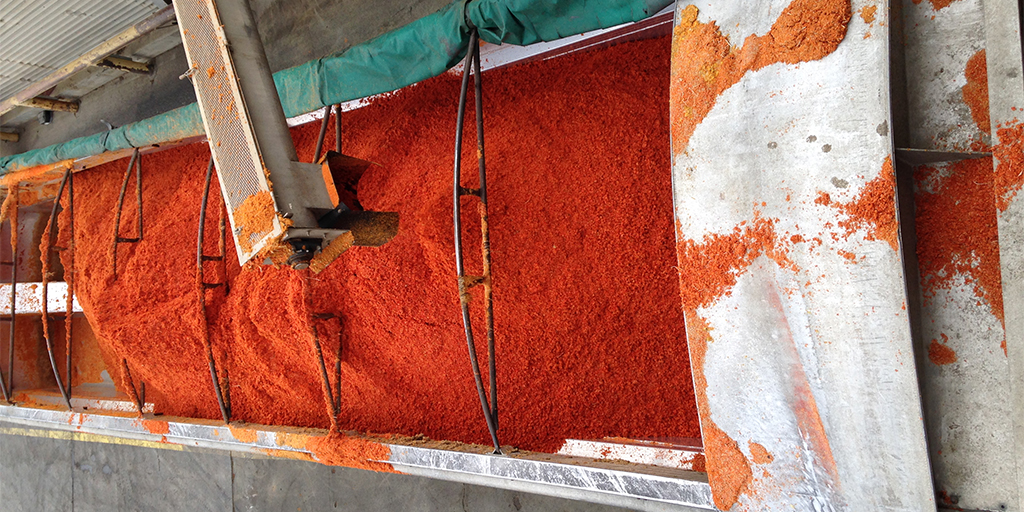Eliminating food waste and reducing food waste in our operations is a key sustainability priority for us. Using the categories of the Food Recovery Hierarchy, we take many steps to prevent and divert waste. Here’s how we do it:
Our commitment
The United States generates roughly 60 million tons of food waste annually, and by focusing on creative and collaborative ways to eliminate food waste in our operations, we are committed to reducing waste sent to the landfill by 25% by 2025 and food waste by 50% by 2030.
Feeding animals
Our largest category of food waste diversion is using food byproducts—which would otherwise go to waste—to feed animals. At our Kettle potato chip plant in Salem, Oregon, nearly one million pounds of potato waste, in the form of peels, pulp and rejects, are sent to a local dairy just 35 miles from the plant to feed cows.
In Dixon and Stockton, California—home to our tomato processing facility—we collect pomace, which consists of unused tomato seeds and peels from making ingredients like tomato paste. “The pomace is sent to companies that make animal and pet food,” said Thomas Maulhardt, our Environmental Supervisor at the sites. “It’s currently primarily fed to cattle.”

Tomato pomace is loaded into trailers to be hauled to the drying site before it becomes animal food
Upcycling food waste
The most preferred form of eliminating food waste is to reduce it at the source and to reuse. One way we do that is by providing our waste to other companies that can make use of it. Like at our Campbell Snacks bakery in Lakeland, Florida, where unused bread is sold to another company to make breadcrumbs.
Feeding people in need
Last year, we donated over $49 million in food to food banks, soup kitchens and shelters in support of the local communities where we operate. This year, we continue to donate food that would have otherwise gone to waste. And with hunger on the rise in the wake of the pandemic, we continue to partner with local nonprofits in our hometowns to ensure food gets in the hands of those in need in the communities where we have operations.
Generating electricity
At our Napoleon plant in Ohio, where we make soups, sauces and beverages, we send expired food and food that doesn’t meet our quality standards to anaerobic digestion—a process that breaks down food to create energy. First the food’s packaging is removed and recycled, and then the waste is broken down in the absence of oxygen. “The broken-down waste is hauled to a third-party digester and turned into energy,” says Sue Cameron, our Environment & Sustainability expert in Napoleon. “The methane from the digester produces electricity which is then used at a neighboring facility.”
After we’ve made chips at our Salem plant in Oregon, we send the leftover frying oil to a local company just 3 miles away that turns the oil into biodiesel. That’s about 1.4 million pounds of oil that’s turned into “green diesel,” which is diesel derived from plants or animals.
Composting food waste
In Camden, New Jersey, at our headquarters, simple practices like sending cafeteria food waste to compost helps to make an impact.
We also compost “wet waste,” like moldy or green tomatoes and tomato vines, that gets picked up by the tomato harvester in Dixon and Stockton.
Learn more about our sustainable operations practices.

